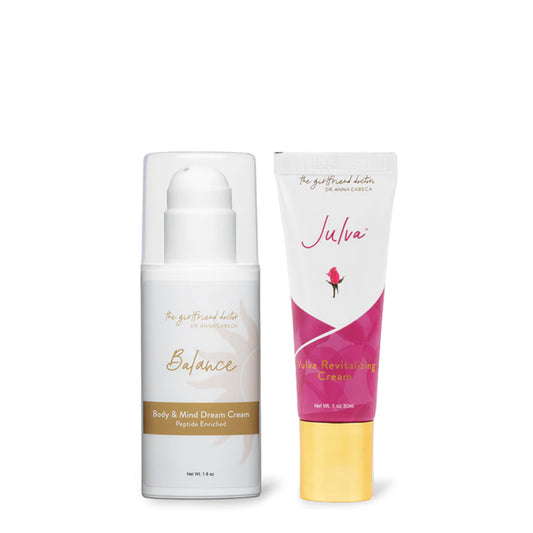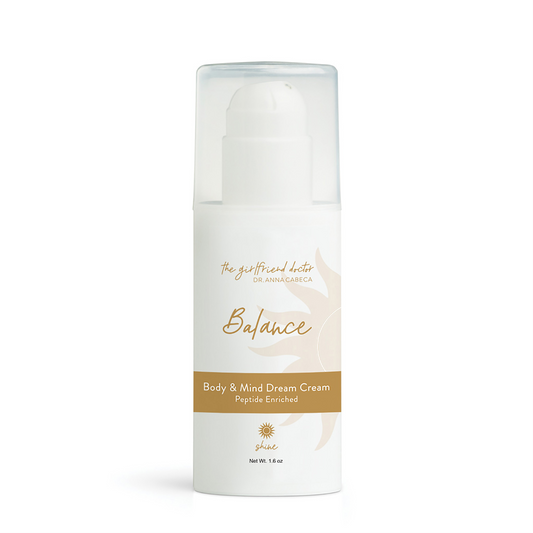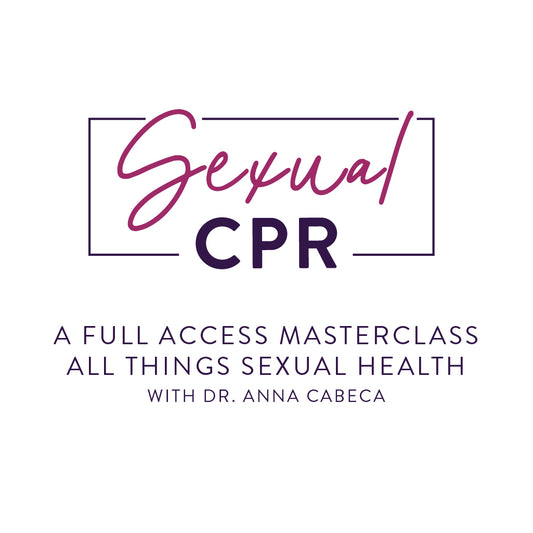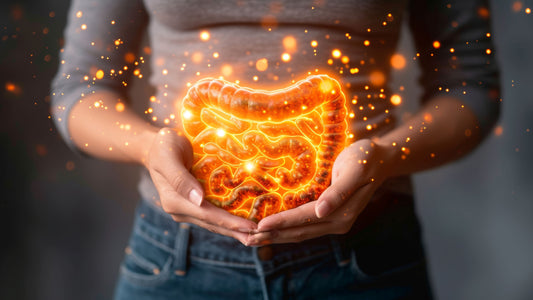An excellent article by James E. Barker, ND details how hormones are the “fountain of youth” in the human body. Their job is to regulate the functions of different tissues and organs as well as blood pressure control, reproductive function, body mass, immune function, cognitive performance, how we deal with stress and so much more.
In the eyes of holistic physicians, hormones are the “fountain of youth” in the human body. Their job is to regulate the functions of different tissues and organs as well as blood pressure control, reproductive function, body mass, immune function, cognitive performance, how we deal with stress and so much more. Hormones are chemical messengers that are released from one area of the body to communicate a signal in another area.
The hormonal “orchestra” must stay in balance in order for the tissues that they regulate to function optimally and stay in harmony. When hormones become depleted or imbalanced (from aging, stress, pollutants, lifestyle) we begin to experience serious health issues.
While the majority of information about hormonal health tends to focus on reproductive function and conditions associated with PMS, menopause, and andropause, other areas of the body are just as greatly affected.
The heart is one organ that hormone balance has a direct effect upon. Newer research is exploring how inadequate hormone levels negatively affect heart health, and how achieving hormone balance can offset this.
Estrogens And The Heart
Estrogens are perhaps most often associated with female reproductive issues. Yet this group of hormones also plays complex roles in non-reproductive tissues including the brain and cardiovascular system. Estrogen receptor molecules are found in the vasculature where they exert positive effects on the ability of blood vessels to dilate and respond to changes in blood pressure (vascular reactivity), as well as lipid-lowering and antithrombotic (clot-preventing) effects.[1]
Epidemiologic studies show less cardiovascular disease occurring in pre-menopausal women in comparison to same-aged men and postmenopausal women, an effect attributed to the difference in estrogen levels between pre- and postmenopausal women and men.[2]
Further, as cardiovascular disease increases drastically after menopause and becomes the most common cause of death in women,[3-4] the need to have adequate/balanced estrogen levels becomes especially important.
Other such epidemiological studies do not show a benefit in the reduction of coronary heart disease (CHD) in postmenopausal women using hormone replacement therapy; however, one notable area of bias is the fact that larger trials used orally dosed estrogens, which leads to a pro-coagulant effect while non-orally dosed estrogens do not exhibit this. Additionally, these studies utilized the synthetic progestin medroxyprogesterone acetate (MPA), which interferes with the beneficial effects of estrogen in the blood vessels, whereas natural progesterone does not have this effect.[5]
On the other hand, naturally derived estradiol and progesterone therapy can have beneficial effects on lipoprotein and cardiovascular indices. In women with mild to moderate hypertension, women treated with these hormones did not experience any negative changes in blood pressure, heart rate, lipids, plasma renin or aldosterone activity levels, nor most importantly antithrombin II levels, suggesting that percutaneous delivery of naturally derived estrogen and progesterone represents a possibly safe HRT treatment for postmenopausal women.[6]
Progestins Vs. Progesterone
There is much confusion in the lay literature regarding this hormone. The term “progesterone” is meant to refer only to naturally derived progesterone hormone, whereas the term “progestin” refers to synthetic analogs of progesterone. Unfortunately, these two terms are often used interchangeably in the mass media to much detriment as they have strikingly different physiological effects; progestins are detrimental to blood vessel walls and thus the cardiovascular system whereas progesterone has not been shown to have this effect.
More specifically, the effects of progestins on blood vessels revealed endothelial (blood vessel lining) disruption, activation of platelets and subsequent clotting, and accumulation of monocytes in vessel walls, whereas progesterone or estrogens (conjugated equine estrogens and 17 beta-estradiol) showed none of these effects.[7] These and other studies confirm the damaging effects of progestins on the cardiovascular system.
The progestins medroxyprogesterone acetate and norethisterone acetate (NETA) also inhibit the beneficial effects of estrogens on the cardiovascular system and induce changes in lipid profiles, development of atheromas (underlying lesions in atherosclerosis) and vasodilation of blood vessels. These antagonist actions are not noted when progesterone is used in combination with estrogens where there is a neutral effect.[8]
Supporting “bioidentical” progesterone levels naturally in the body takes on even greater importance when considering the immediate downstream metabolism of progesterone into the hormone cortisol. Cortisol is the body’s main anti-inflammatory hormone (with other effects) and is responsible for quenching inflammatory processes. This is especially important in cardiovascular disease, which is initiated by inflammatory processes.[9]
It is hypothesized that as stress levels elevate and the demand for cortisol increases, this may have a depleting effect on the body’s progesterone stores and thereby creates further hormone imbalance in the form of depressed progesterone levels. This is known as the “progesterone steal”, wherein the body steals progesterone in order to make cortisol. Continual demands for cortisol, in turn, draw upon progesterone, setting one up for hormonal imbalance as progesterone is used up to manufacture stress-related hormones.
Testosterone’s Protective Effect
Lower levels of testosterone are associated with increased cardiovascular mortality; they are also associated with several conditions (insulin resistance, metabolic syndrome and diabetes) that lead to cardiovascular disease.[10] In the case of heart failure, which is, in reality, a multisystem disease, it is estimated that 26-37 percent of men with this condition are deficient in testosterone.[11]
Androgen (testosterone) levels determine one’s anabolic state, muscular strength, and anti-inflammatory and vasodilatory effects; heart failure is characterized by a shift towards catabolism (tissue breakdown), production of pro-inflammatory cytokines, loss of muscle mass and vasodilatory incapacity.[12] The use of testosterone replacement therapy in heart failure has beneficial effects. Men with moderately severe heart failure who used only 5 milligrams testosterone for 12 months experienced improvements in functional capacity and heart failure symptoms.[12]
Testosterone therapy in women with chronic heart failure also improved their functional capacity, muscular strength and parameters of insulin resistance, with no detectable side effects.[13]
Measuring Hormone Levels
This article is only a short review of the multiple effects that a few key hormones have on the heart and cardiovascular system. Hormonal health extends beyond the heart to every tissue in the body. Hormonal decline and imbalance is an issue that all adults will face at midlife and left unaddressed has the potential to create many additional health problems. Obtaining a salivary hormone test (Comprehensive Hormone Panel) is an ideal way to establish baseline hormone levels in order to determine the extent of replacement and or balance needed.
Restoring Balanced Levels
There are several botanicals that support testosterone levels. Luteolin (Perilla frutescens), myricetin (Myrica cerifera), beta sitosterol, Nettle (Urtica dioica) and Eurycoma longifolia jack found in AndroAMP work to support testosterone levels in several ways.
Luteolin inhibits the conversion of testosterone into estrogen via aromatase inhibition, preventing testosterone from converting into estrogen.[14] Myricetin and beta sitosterol inhibit the enzyme 5 alpha-reductase, preventing the conversion of testosterone into the metabolite 5 hydroxtestosteone.[15-16] Nettle binds to Sex Hormone Binding Globulin (SHBG) preventing it from locking onto free testosterone and limiting its biological activity.[17] Lastly, Eurycoma longifolia jack can improve androgenic activity such as libido and sexual activity.[18-19]
Vitamin D3 also has been shown to provide a supportive effect on testosterone levels. A trial involving overweight men on a weight reduction plan examined the effects of supplementing vitamin D3 for one year on the subjects’ testosterone levels. After a year of supplementation, average vitamin D levels increased significantly as did all (total, bioactive and free) testosterone indices, suggesting that vitamin D supplementation can boost testosterone levels in men.[20]
Bioidentical hormones are naturally derived hormonal preparations that can directly support hormone levels. Progesterone cream can be used to directly support progesterone in both women and men, all the while offsetting the effects of excess estrogen and preventing a drain of progesterone due to the “progesterone steal.” As physicians trained in the art and science of bioidentical hormone replacement know, bioidentical estrogens (Bi-Est cream), from a compounding pharmacy, can be used to support estrogen-dependent physiological processes in postmenopausal women. Saliva testing also can determine baseline hormonal levels.
Conclusion
Cardiovascular health is dependent upon proper hormonal balance. It is ideal to test levels of estrogen, testosterone, progesterone and cortisol and to restore optimal levels if they are inadequate in order to help ensure the success of any heart-supportive regimen.
By Jason E. Barker, ND
References
1. Billeci AM, Paciaroni M, Caso V, Agnelli G. Hormone replacement therapy and stroke. Curr Vasc Pharmacol. 2008 Apr;6(2):112-23.
2. Masood DE, Roach EC, Beauregard KG, Khalil RA. Impact of sex hormone metabolism on the vascular effects of menopausal hormone therapy in cardiovascular disease. Curr Drug Metab. 2010 Oct 1;11(8):693-714.
3. Schenck-Gustafsson K, Brincat M, Erel CT, et al. EMAS position statement: Managing the menopause in the context of coronary heart disease. Maturitas. 2011 Jan;68(1):94-7.
4. Ballard VL, Edelberg JM. Harnessing hormonal signaling for cardioprotection. Sci Aging Knowledge Environ. 2005 Dec 21;2005(51):re6.
5. Kuttenn F, Gerson M, de Lignères B. Effects of hormone replacement therapy in menopause on cardiovascular risk. Need for a European study. Presse Med. 2002 Mar 16;31(10):468-75.
6. Spritzer PM, Vitola D, Vilodre LC, Wender MC, Reis FM, Ruschel S, Castro I. One year follow-up of hormone replacement therapy with percutaneous estradiol and low-dose vaginal natural progesterone in women with mild to moderate hypertension. Exp Clin Endocrinol Diabetes. 2003 Aug;111(5):267-73.
7. Thomas T, Rhodin J, Clark L, Garces A. Progestins initiate adverse events of menopausal estrogen therapy. Climacteric. 2003 Dec;6(4):293-301.
8. Sitruk-Ware R. Progestins and cardiovascular risk markers. Steroids. 2000 Oct-Nov;65(10-11):651-8.
9. Bucova M, Bernadic M, Buckingham T. C-reactive protein, cytokines and inflammation in cardiovascular diseases. Bratisl Lek Listy. 2008;109(8):333-40.
10. Yeap BB. Curr Opin Endocrinol Diabetes Obes. 2010 Jun;17(3):269-76. Androgens and cardiovascular disease.
11. Naghi JJ, Philip KJ, Dilibero D, et al. Testosterone Therapy: Treatment of Metabolic Disturbances in Heart Failure. J Cardiovasc Pharmacol Ther. 2010 Nov 19.
12. Malkin CJ, Pugh PJ, West JN, et al. Testosterone therapy in men with moderate severity heart failure: a double-blind randomized placebo controlled trial. Eur Heart J. 2006 Jan;27(1):57-64.
13. Iellamo F, Volterrani M, Caminiti G, et al. Testosterone therapy in women with chronic heart failure: a pilot double-blind, randomized, placebo-controlled study. J Am Coll Cardiol. 2010 Oct 12;56(16):1310-6.
14. Wang C, Mäkelä T, Hase T, et al. Lignans and flavonoids inhibit aromatase enzyme in human preadipocytes. J Steroid Biochem Mol Biol. 1994 Aug;50(3-4):205-12.
15. Prager N, Bickett K, French N, et al. A randomized, double-blind, placebo-controlled trial to determine the effectiveness of botanically derived inhibitors of 5-alpha-reductase in the treatment of androgenetic alopecia. J Altern Complement Med. 2002 Apr;8(2):143-52.
16. Hiipakka RA. Structure-activity relationships for inhibition of human 5alpha-reductases by polyphenols. Biochem Pharmacol. 2002 Mar 15;63(6):1165-76.
17. Schottner M, Gansser D, Spiteller G, et al. Lignans from the roots of Urtica dioica and their metabolites bind to human sex hormone binding globulin (SHBG). Planta Med. 1997;63:529-32.
18. Ang HH, Cheang HS, Yusof AP. Effects of Eurycoma longifolia Jack (Tongkat Ali) on the initiation of sexual performance of inexperienced castrated male rats. Exp Anim. 2000;49:35-8.
19. Ang HH, Ikeda S, Gan EK. Evaluation of the potency activity of aphrodisiac in Eurycoma longifolia Jack. Phytother Res. 2001;15:435-6.
20. Pilz S, Frisch S, Koertke H, et al. Effect of Vitamin D supplementation on testosterone levels in men. Hormone and Metabolic Research. December 10, 2010.







